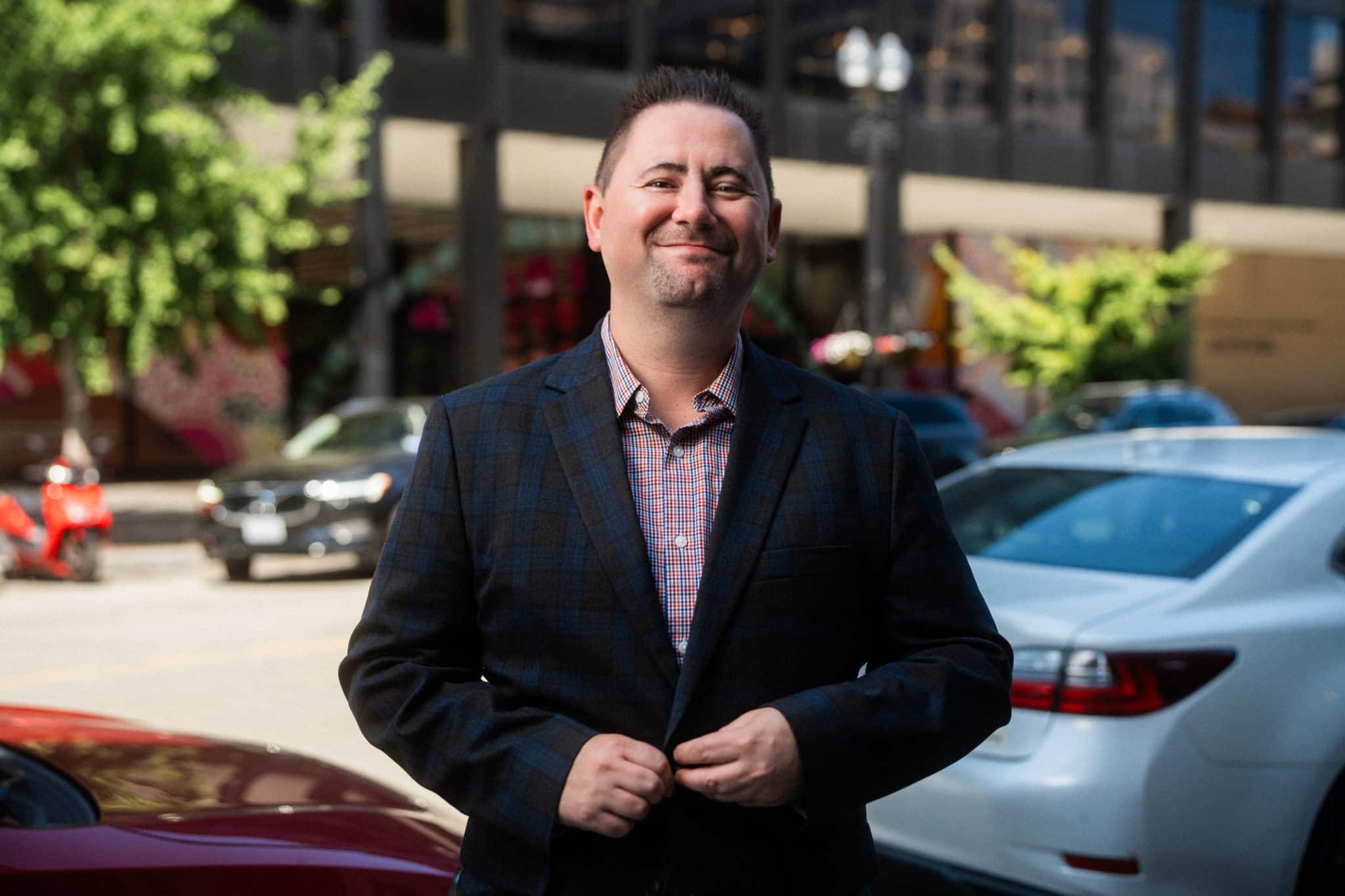Caregiving in the Time of Tragedy

Tony Iovieno was hired by Family Values @ Work a couple years ago to work in development. He had no idea when he was hired that he would soon depend on the organization to live up to its values around paid leave.
About a year ago, Tony’s brother, sister-in-law and nephew were in a serious car accident. The accident had devastating results. His nephew and sister-in-law, who was pregnant at the time, were injured. His brother died in the accident. Tony not only needed time to grieve the death of his brother, he also needed time to help support his injured family members, who live almost 2 hours away from him.
Tony understands that his ability to be present as a caregiver is unique to his family, though he says it shouldn’t be. While family members initially rallied around the recovering family members, the in-person support waned as time went on. Tony has family members in Michigan with a wide variety of occupations. Some are teachers. Others are small business owners. Some are farmers. None of them have access to paid leave as Tony does. They could not be present consistently because they had to return to their jobs and businesses. Although being a caregiver has become a part of his new normal, he still marvels at his ability to be a caregiver.
“When Mom needs a break, I can zoom over there,” he says. “I don’t have to worry about losing something.”
His access to paid leave has allowed him to be present for both big and small family moments. He’s been able to help his sister-in-law, Katie, after she gave birth to a daughter, McKenna. He also has been able to spend quality time with his nephew, Mikey. Mikey has recovered from his accident injuries, but still needs support for the psychological trauma he experienced. They share a love of baseball and recently went to a Detroit Tigers baseball game.
Tony is actively involved in his community and willing to share his caregiving story with others, including those in his community who have a direct influence on state legislation. He says his relationship with Michigan legislators is “open and positive.” He is willing to share his caregiving story with them because some of the legislators assume that issues around caregiving have nothing to do with men. Based on his own experience, men are very much a part of the issues around caregiving and the need for paid leave. He said he feels a responsibility to share his story because many of the people who create barriers to paid leave are “people who look like him.”
“I try to poke holes in the reasons against (paid leave),” he says. “It’s just the reality of 2024.”
Tony conveys his understanding that the need for paid leave isn’t limited to large life events. He said it could be a situation as commonplace as having a child who is suddenly sick and cannot be placed in daycare when the newly-hired parent’s benefits don’t start for another six months. This everyday occurrence could put an entire family at-risk for job loss and financial ruin.
Tony advocates for paid leave in his state as well as paid sick and safe days. Paid sick and safe days are days a worker can take away from work to recover from an illness or for caregiving. The sick and safe days ensure that the worker’s job is not in jeopardy simply because they are ill or that they have a family member who needs care. The Family and Medical Leave Act (FMLA) provides a model for paid sick and safe days. FMLA was passed during the Clinton administration in 1993. Under FMLA, workers can take up to 12 weeks away from work to recover from a serious illness or to take care of a family member without losing their job. However, under FMLA, the time away from work is not paid. The loss of wages and other qualifying regulations under FMLA often make it inaccessible to many workers, especially low wage or rural workers. Tony stresses that his ability to be present for his family should not be unique to him, but something readily available to his family and to other Michigan workers.
Although he is outspoken about his caregiving experiences, Tony is humble about its impact on his family.
“I’m glad I was in the position to help, but the big hero in my story is Katie, my sister-in-law,” he says. “She’s made a full recovery, but there’s no breaks for her. Our policies don’t make life easy for her.”
He hopes that more men realize that they will, sooner or later, be affected by caregiving. He also invites men to take on the responsibility of pushing for paid leave and paid sick and safe days.
“More people should understand that caregiving can happen whether or not you were planning for it.”